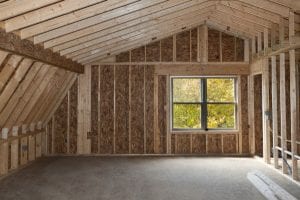
24 Oct 5 Things to Consider When Planning for a Home Room Addition
The prospect of making your visions come to life can be overwhelming both emotionally and financially. Considering the resources you’re going to use, it’s dire to come up with a foolproof plan to get the job done successfully. Planning for room additions are much easier to picture than execute, thankfully there are ways to streamline the process.
Take your pens out or your memos ready, and get started with these five considerations for your home room addition.
1. Suitable Home Addition
Flipping through remodeling magazines can get you overexcited with which additions to get your home. Laying out your plans, however, calls for you to know the kind of addition you want, its use considering your location, the timeline for your project, and your budget for the remodeling.
If you’re planning to sell in the future, you’d definitely want to go for an addition that doesn’t just take up floor space but adds market value as well. A quick research on your area or phone call with trusted local remodeling contractors can help you get an insight on which additions will boost your property in the local real estate market.
2. Floor Plan
 Consulting your floor plan will make the planning process much easier. It’ll give you the overall make-up of your home, helping you decide where to best put the addition.
Consulting your floor plan will make the planning process much easier. It’ll give you the overall make-up of your home, helping you decide where to best put the addition.
You’ll also need a floor plan – preferably a scaled version – that’s integrated the additions. This will help you and your remodelers estimate the needed materials.
3. Realistic Budget
Setting a budget is crucial in the execution and planning of your project; you might just get hooked with a design that’s out of your range or is going to run your finances dry. This won’t necessarily mean you’ll have to settle for a less attractive and useful addition, but will reasonably direct your remodeling.
Your budget should consider the project cost, contingency, certificates or licenses, and insurance. You’ll also want to consider if the addition will entail extending your heating and cooling systems.
4. Requirements
Even inside your own property, you’re still mandated to follow certain building and zoning requirements. Visit your development department and county or local city planning before the construction to know what requirements you need to secure. You should also check your mortgage paperwork to check for your road rights of way.
5. Professional Help
Surely, between work and domestic errands, you’re going to need help with your room addition plans. Unlike some furniture, adding a room to your home isn’t a DIY project. While it takes a family to build homes, it takes professionals to create houses that eventually make homes.
Having expert contractors will help you know the right materials – kind and volume – to buy. With them around, you also cut the chances of getting ripped off in the market. You may even save more considering they know the best alternatives to the materials you may initially want to use.
Need Help in Choosing the Right Home Remodeling Contractor? Read Our Guide!
Whether your room additions are for personal motivations or marketing drives, you’ll need a professional to help turn your vision to reality. With a professional working on your home improvements, you’re ensured of quality and safety minus the risks of chaotic and lengthy do-overs.



